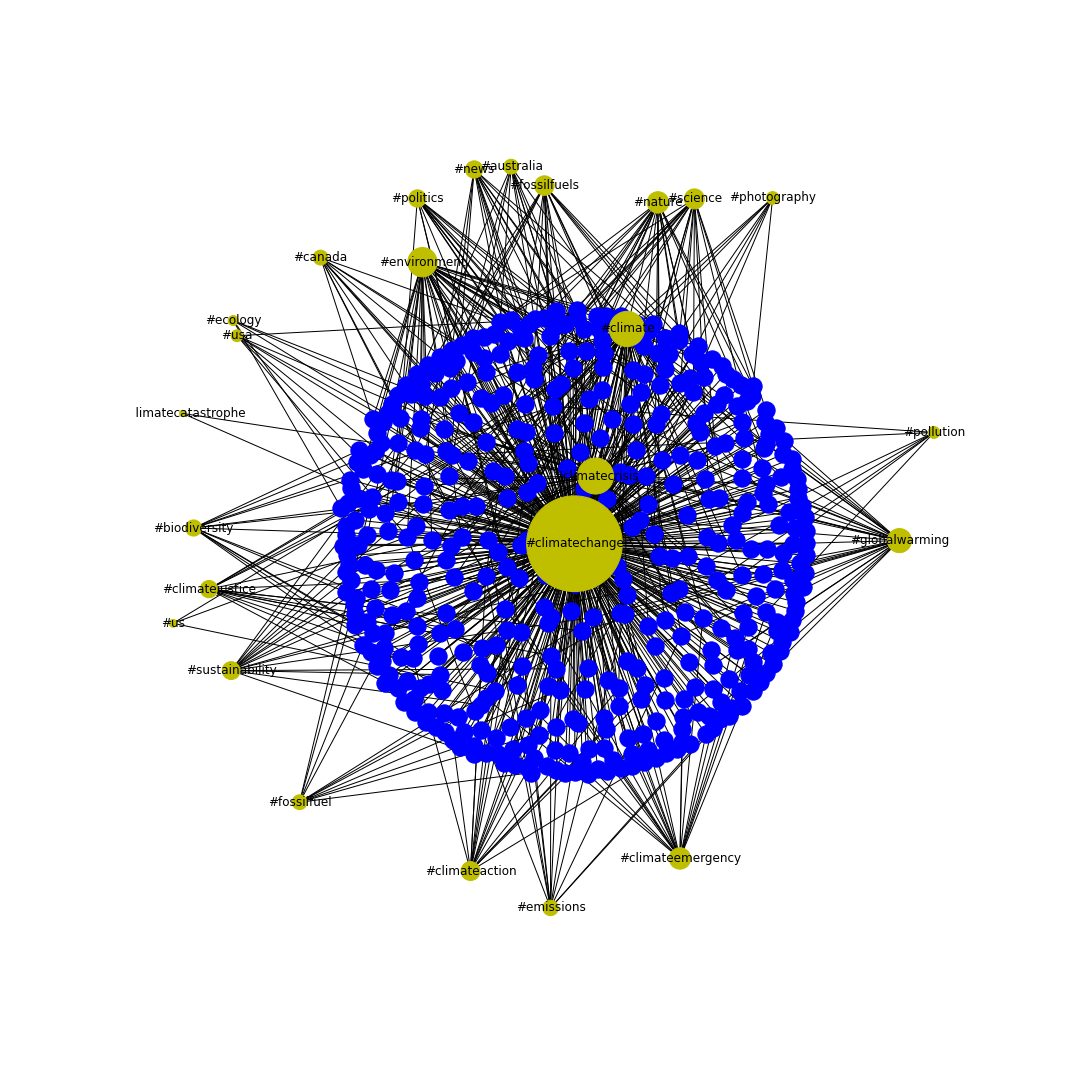While Mastodon is still a relatively new platform (especially compared to other platform like Twitter) it is filled with a thriving community of people who love to share their knowledge and express their options.
I thought I would take a closer look at a topic which always appears to be part of a conversation somewhere. This topic is climate change, or, in social media terms, #ClimateChange.
Why #ClimateChange in particular? It’s always an active topic and people are likely to share an opinion. Plus, I find it interesting.
Given its widespread coverage, I thought I would explore this further and uncover other hashtags which are relevant and used to support the conversation in some way or another.
In a separate blog post, I covered the basics for building what I call User-Hashtag co-occurrence networks. The basic idea is that a network is formed of two types of nodes – users and hashtags. Edges are formed where a user features as hashtag in their post.
Using this technique, I thought I would use #ClimateChange as an exemplar to see if we can extract anything interesting out of the network. The network was built from activity within the past 5 days across Mastodon.
The resulting network featured a total of 458 users, 1,373 hashtags, 4,960 connections (edges) and 885 posts.
That’s quite big so to make things a little more manageable I only took the top 25 hashtags based upon the number of connections (degree). These hashtags are as follows along with the reduced network.
| Hashtag | Count |
|---|---|
| #climatechange | 885 |
| #climate | 251 |
| #climatecrisis | 251 |
| #environment | 186 |
| #climateemergency | 156 |
| #ecology | 132 |
| #pollution | 126 |
| #climatecatastrophe | 121 |
| #nature | 38 |
| #globalwarming | 36 |
| #usa | 35 |
| #science | 34 |
| #climatejustice | 31 |
| #fossilfuels | 30 |
| #us | 27 |
| #news | 26 |
| #australia | 23 |
| #climateaction | 22 |
| #canada | 21 |
| #sustainability | 21 |
| #politics | 21 |
| #biodiversity | 20 |
| #photography | 19 |
| #emissions | 17 |
| #fossilfuel | 16 |

Overall, the results aren’t as interesting as I thought. One thing I found fairly interesting was how country hashtags (e.g. #canada, #usa, #australia) were featured. This suggests that people are are discussing climate change with respect to a country in mind. Discuss policies? Also, it’s interesting how terms like #ClimateCrisis and #ClimateEmergency rank quite highly as part of the discussion.
